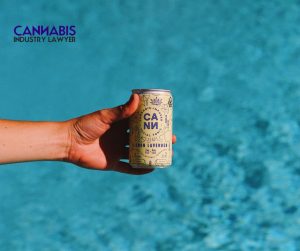How to protect a marijuana trademark
 Marijuana trademarks are a hard area to navigate in the business. Like any other, the cannabis industry is very protective of their products and services. In this sense, it would be a good idea to try to protect your Intellectual Property rights regarding your cannabis business. But is it possible under current regulations to do so?
Marijuana trademarks are a hard area to navigate in the business. Like any other, the cannabis industry is very protective of their products and services. In this sense, it would be a good idea to try to protect your Intellectual Property rights regarding your cannabis business. But is it possible under current regulations to do so?
In today’s world, consumers are constantly overwhelmed with a lot of brands. Though there’s no wonder why, as they are an effective way to help your company create brand recognition, avoid legal issues in the future, and give your company a sense of autonomy, creating a real incentive for people to join your company and push consumers to buy your product or services.
In this article, we will briefly go around how you could protect your IP rights regarding marijuana trademarks, specifically: can you register a marijuana trademark?
RELATED POST: CANNABIS PITCH DECKS
RELATED POST: CANNABIS BUSINESS PLAN
Can you get a trademark on a marijuana-related brand?
Let’s get this out of the way: from a federal standpoint, it is impossible to trademark a brand directly related to cannabis as it is a Schedule I substance according to the CSA and as such, it’s considered an illegal subject matter.
So this should be it, right? Not really. Anybody with a brand has Intellectual Property rights, but not everybody with a brand has federal Intellectual Property rights.
What this means is, if you have a brand and that brand has certain recognition on the market, you got a common law trademark right. This common law trademark right comes with the use and recognition of the brand, as well as with the association of goods and services to a particular source that the consumers have. And, even if common law rights can be a bit harder to enforce, it is not impossible to enforce them.
In addition to this, you can also get a state trademark for things you generally couldn’t legally protect on a federal level. Obviously, in this case, you wouldn’t be able to do it in all states (states in which cannabis is not legalized yet won’t grant you a trademark on it because it would be an illegal subject). But it’s still a great start for your business regarding the protection of your brand.
Furthermore, it’s important to mention that the federal regulations regarding trademarks do not apply to hemp, which was removed from CSA’s Schedule I, thanks to the Hemp Farming Act of 2018. And that nowadays, the only option available to protect IP rights for seed-propagated non-hemp Cannabis, on a federal level, is the utility patent.
This can cause quite a bit of confusion because it seems as though the same federal agency –the USPTO- has two different sets of rules.
The reason behind this is fairly simple: they operate under two different statuses -namely the Lanham Act, and the U.S. Patent Law- with different sets of requirements.
Qualifying for trademark protection requires legal use in commerce, but there’s no requirement for legal use or any kind of use for a patent, the Patent just requires -in an oversimplified way- that whatever you say you invented qualifies as being new, not obvious, and adequately described. So if it meets the criteria for patentability, the subject for which it would be applied doesn’t have to be legal at all.
Technically, you can get a plant patent on cannabis right now, which is a method we’d highly recommend: A wide variety of plant patents have been issued, as well as patents for different modes of extraction, different ways of processing, different products that contain THC or CBD or other cannabinoids, etc. This may make the patents the most effective way to protect your product.
But this doesn’t mean that you can’t have a trademark for your cannabis-related business. Take Dabstars™ as an example: they started as a t-shirt brand. In the beginning, they had issues because it was cannabis-related, but they worked around that and managed to trademark the Dabstar™ brand. Nowadays, after many years, they’re a staple cannabis brand.
Another great example of this is Cookies™ and its clothing brand Cookies SF™. This company started as just a clothing and accessories brand and nowadays is another highly regarded cannabis brand.
Like these, a lot of companies have aspirations of having a nationwide brand. However, with the current regulations, they can’t get brand protection on a federal level for anything related to the cannabis plant right now.
Having this in mind, these companies will look for things that they can associate with that brand and they’ll get federal protection on those things. They will then try to get common law protection and, often, state protection on the things that cannot be protected federally.
Do you need help applying for a marijuana trademark?
We can help you
Click Here
Ways to protect your marijuana-related brand
So, even though the Cannabis plant isn’t federally legal in use, the concept of cannabis can get protection in the creative type of rights (i.e: a creative representation of the plant on clothing). In this sense, below you’ll find some of the “hacks” that companies use to try to protect their cannabis brand:
- They highly value marketing, to establish common law rights that would correlate with brand recognition, customer recognition, and appreciation.
- They complement that common law right with state rights over that brand and a federal trademark on related goods, so all of this can serve as a pressure point to anybody who wants to infringe on your trademark right.
- They police their mark: if any other people start using their state or common law trademark, they will get a cease and desist letter from the company claiming their preferential rights over the trademark.
It’s important to remember that for you to have rights over a brand, this would have to be distinctive and unique inside the class that you would want to register it in and that you would also have to comply with the requirements for registration according to the USPTO.
Furthermore, you would have to look out for the well-known trademarks, which can bring an action for trademark dilution if your trademark resembles theirs (i.e: “Coca-Ola” couldn’t be registered for a cannabis product –or anything, for that matter- because it resembles “Coca-Cola™”).
Don’t miss out on our Marijuana Legalization Map where you can browse the current status of laws in every state in the United States and see all our posts on each of them.
Check Out:
- Tom Howard at CannabisIndustryLawyer.com
- Miggy at Cannabis Legalization News
Interested in coming on as a guest? Email our producer at [email protected].





